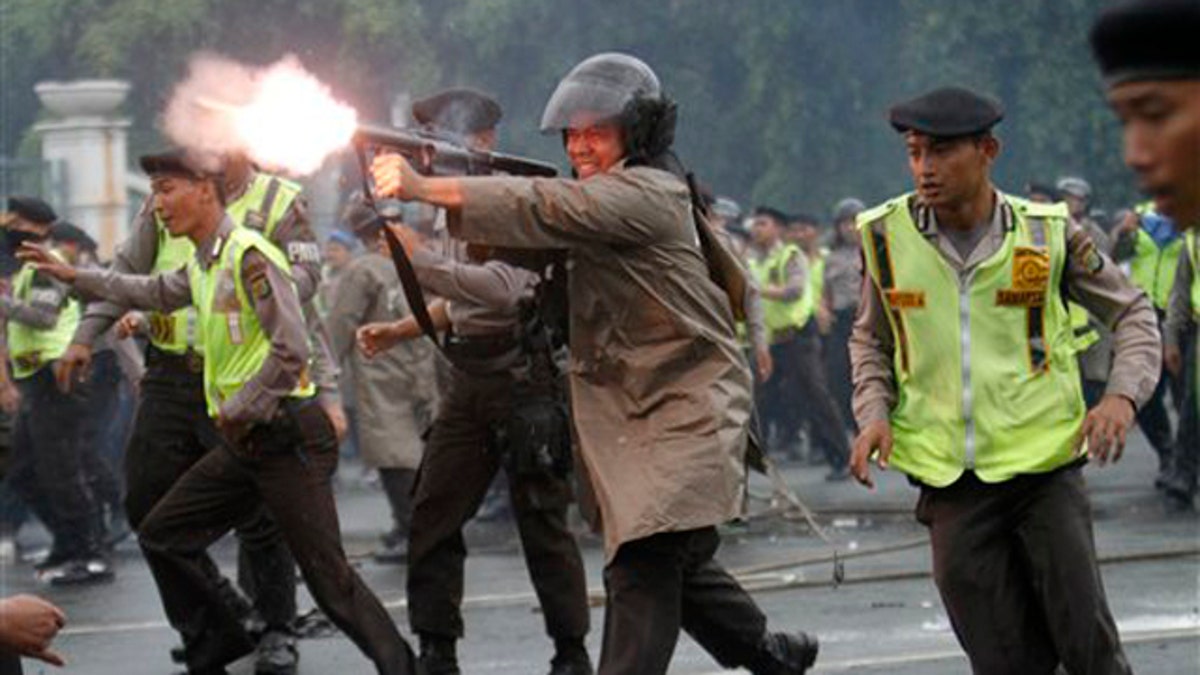
March 27, 2012: An Indonesian police officer fires a tear gas launcher to disperse student protesters during a protest against the government's plan to raise fuel prices in Jakarta, Indonesia. (AP)
JAKARTA, Indonesia – Police fired tear gas and water cannons to disperse thousands of rock-throwing Indonesians protesting plans to push up fuel prices by more than 30 percent. Several people were injured and rushed to hospitals.
Rallies were held under tight security in big cities all over the country Tuesday as parliament debated the hike.
Some lawmakers said the government had no choice but to cut budget-busting fuel subsidies, which have for years enabled motorists to fill up for roughly $2 per gallon. Others argued raising prices could more than double inflation to 7 percent.
With global oil prices surging, most Indonesians realize there's little choice. But that hasn't stopped thousands in a nation of 240 million, many of whom live in abject poverty, from taking to the streets every day for the last week.
If a price increase is approved, it will go into effect Sunday.
Security was especially tight in the capital, Jakarta, where 20,000 soldiers and police were deployed to secure key locations, including the presidential palace.
"We reject the fuel hike plan," protest leader Akhmad Suhaimi, told a cheering crowd gathered in front of the palace. The cost of everything from food and transportation to electricity will go up, he shouted.
"It's the poor that are going to suffer most."
Most demonstrations were peaceful Tuesday.
But in Jakarta and Makassar, the main city on Sulawesi island, thousands of protesters blocked off streets, set fires and pelted police with rocks.
The demonstrators -- many of them students swinging big bamboo sticks -- were eventually dispersed with tear gas and water cannons.
At least three were injured and rushed to the hospital, according to footage shown on the local station, MetroTV. Several police also were hurt.
The price of crude oil has jumped from $75 a barrel in October to nearly $110 recently, in part due to growing concern a military strike by Israel or the U.S. against Iran's nuclear facilities would disrupt global crude supplies.
Subsidies, put in place in Indonesia and many other Asian countries decades ago to make fuel affordable for the poor, eat up 20 percent of the national budget. Analysts say that money would be better spent on infrastructure, education, and health.
A big price increase in 1998 triggered rioting that helped topple former dictator Suharto. Protests also forced former President Megawati Sukarnoputri to scale back a fuel price increase in 2002.
Scattered demonstrations took place the last time the current government cut subsidies in 2008.
